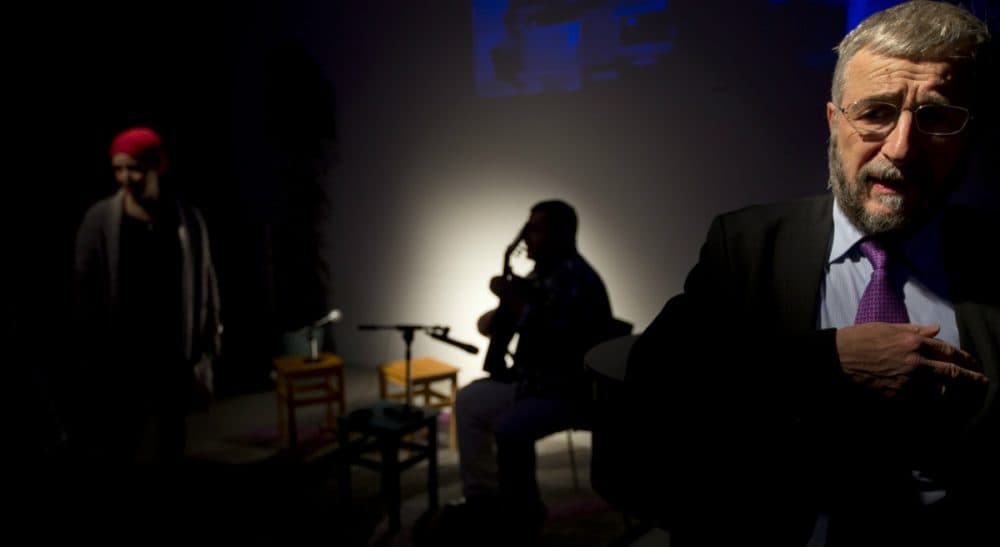Advertisement
Are Jews Safe In Europe Today?

Seventy years ago, my father and his family were hiding in a small room in Lyon, France hoping to escape deportation to a Nazi death camp. Jews were steadily being swept into the Nazi killing machine. Fear was a part of their daily diet. With the liberation of Europe, however, the remnants of a once robust European Jewry were freed from unrelenting terror.
Now it has returned.
On February 14, a lone gunman in Copenhagen attacked people attending a free speech program and a synagogue celebrating a bat mitzvah, killing three people and wounding five. This was the second recent attack by radical Islamists on proponents of free speech, and just the latest in a series carried out against Jews and Jewish institutions in France, Belgium and elsewhere.
With the liberation of Europe ... the remnants of a once robust European Jewry were freed from unrelenting terror. Now it has returned.
In many parts of Europe, being Jewish is no longer safe. Parents wonder whether it is safe to send their children to a Jewish school. Jewish worshippers ask if it is safe to pray in their synagogues. And Jews question whether they have a future in the lands of their birth.
Some might consider this response exaggerated. As horrible as they were, the recent attacks were the actions of only a few people. Yet, they had a common ominous thread. Each was perpetrated by young Muslims motivated by a radical theology that has been coursing through the Islamic world and inspiring a generation of violent jihadists.
These modern day revolutionaries have contempt for the values of the liberal West. To enforce their vision of holiness they sanction the killing of nonbelievers: Christians, “apostate” Muslims, Jews, Yazidis, Baha’is and others. In Europe, Jews, who bear the brunt of this viral terror, understand that something more than armed guards will be needed to defeat it. But there is reason to doubt that all their governments share this understanding.
Governments have considerable experience fighting criminal action, but fighting an idea is much harder. First, you have to name it. Many Western leaders are reluctant to do this. They fear alienating their Muslim residents or providing fodder to right-wing extremists, who could use such a declaration to justify anti-Muslim bigotry. This is an understandable concern.
Advertisement
The attackers may all be Muslim, but many European Muslims condemn these attacks. Blaming them for what a small number of co-religionists do would not only be unjust, but also expose governments to the charge that they engage in the same kind of intolerance they are purportedly fighting.
In fact, many European Muslims have accommodated themselves to the societies in which they live and have embraced democratic values. Others, however, have difficulty reconciling their religious commitments with secular societies that validate free speech, women’s rights, and sexual and religious freedom. Few of them call for killing those who offend them, but they are part of a wider current of thinking that is increasingly, and sometimes dangerously, at odds with what liberal democratic societies value.
This was evident in a sermon given one day before the attack in Copenhagen by the Imam of the city’s Al-Faruq Mosque. He described interfaith dialogue as a “malignant idea,” rejected “man-made laws legislated by … criminals,” and noted that when Jews refused Mohammad’s call to Islam he “waged war against the Jews.”
Today, Jews across Europe are watching to see how their political leaders respond to this historic challenge.
Such rhetoric provides fertile ground for the spread of radical Islam and the violence it generates. That’s why it is urgent for European leaders to give a name to this phenomenon and commit to overcome it. This does not mean declaring war on Islam or demonizing all Muslims. Rather, it is to defend liberal democratic societies and reassure citizens of all faiths and backgrounds that their governments will not cave in to hate.
Today, Jews across Europe are watching to see how their political leaders respond to this historic challenge. They vividly recall the fate of co-religionists during World War II, who were trapped in a Europe that awoke too late to the menace posed by Hitler’s dreams. Now they are witnessing another ominous movement take root in Europe.
If those who govern cannot show the moral and political clarity needed to defend their nations and secure the safety of their Jewish communities, many Jews may feel compelled to leave their homes. If this happens, the nations that failed them will be left to ponder whether a democracy that lacks the will to defend its citizens can endure.
